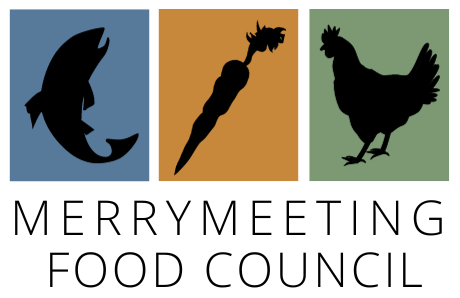Are you interested in implementing a Food Sovereignty Ordinance in your community?
What is food Sovereignty?
Food sovereignty is the right of peoples to healthy and culturally appropriate food produced through ecologically sound and sustainable methods, and their right to define their own food and agriculture systems. It puts those who produce, distribute and consume food at the heart of food systems. It based on La Via Campesina, the peasants’ movement, which began in 1992 in South America to protect the lives, livelihood and land of small-scale farmers. It has grown to an international movement to empower food producers (farmers, fisherman, etc), protecting their rights, attaining living wages, healthy working conditions, food justice and environmentally sound food farming/harvesting practices. (sources: localfoodrules.org, https://viacampesina.org)
There are many ways we can all work to increase the food sovereignty of our communities and because of it’s breadth, people may have very different understandings and associations with the term. Focusing on the people at the heart of the food system, we use the term to mean: "that people are empowered to build a better food system for their own communities." - Maine Network of Community Food Councils (10/2024 newsletter with more resources).
In Maine, much of the recent discussion around food sovereignty has focused on one approach to increasing food sovereignty, food sovereignty ordinances. These ordinances allow small scale, backyard producers, homesteaders, hobbyists, etc, to produce foods without being a state inspected and licensed facility, ONLY, when food is being sold directly to the consumer at the site of production (ex. producers home). The purpose is to allow people to decide what they eat, and how they want their food produced, and requires there be open and trustful communication between the producer and consumer.
While we focus on food sovereignty ordinances on this page, ordinances are only one way to increase the food sovereignty of communities. We strongly encourage you to review these resources and learn more about the international movement.
Food Sovereignty Explained, La Via Campesina
What is Food Sovereignty and Why is it Important to Tribes?, Partnership with Native Americans
Food Sovereignty Systems, Food and Agricultural Organization of the United Nations
What is the history of food sovereignty ordinances in Maine?
In 2011, Maine passed a bill “to oppose any federal statute, law, or regulation that attempts to threaten our basic human right to save seed and grow, process, consume and exchange food and farm products” in response to pressure from Maine farmers, food producers and community members. This legislation was based on a grassroots effort by community members in Down East Maine. The grassroots effort has a website, Local Food Rules.
With a growing grassroots base and outreach efforts, and work by then State Rep. Craig Hickman and Senator Troy Jackson, in 2017 Gov. LePage signed the Maine Food Sovereignty Act into law, giving municipalities the right to regulate their own food systems. This is done through a Food Sovereignty Ordinance (FSO) at the municipal level. Link to the Maine Food Sovereignty Act legislation.
As of 2025, over 113 municipalities in Maine have implemented Food Sovereignty Ordinances. See information, here. This is roughly 30% of towns in Maine representing ~25% of the total population of the state according to Local Food Rules.
In 2021, Maine voters passed a constitutional amendment declaring "that all individuals have a natural, inherent and unalienable right to grow, raise, harvest, produce and consume the food of their own choosing for their own nourishment, sustenance, bodily health and well-being". It was with a 60% majority. See full text, here.
What is a Food Sovereignty Ordinance?
A Food Sovereignty Ordinance (FSO) is the written rule that municipalities use to define their own food system under the Maine Food Sovereignty Act.
How do I Implement an FSO in my community?
Reach out to other community members you know to see if there is interest, and need for you in your community.
Check to see if your community has an FSO in place.
As applicable, reach out to your city/town counselors or select people to gain their support, and/or educate them on why you or your group feel an FSO is a valuable addition to your community.
Reach out to the municipal staff in your community to ask about the process for implementing, or changing ordinances in your community.
FSO Resources:
Local Food Rules - A grassroots group that worked to implement the Maine Food Sovereignty Act, under which community level FSOs are made. Their webpage is full of information on Food Sovereignty and they have a group of people who will answer any questions you may have.
FSO TEMPLATES:
Do you have suggestions for how to make this page better? Do you have questions?
Email info@merrymeetingfc.org
